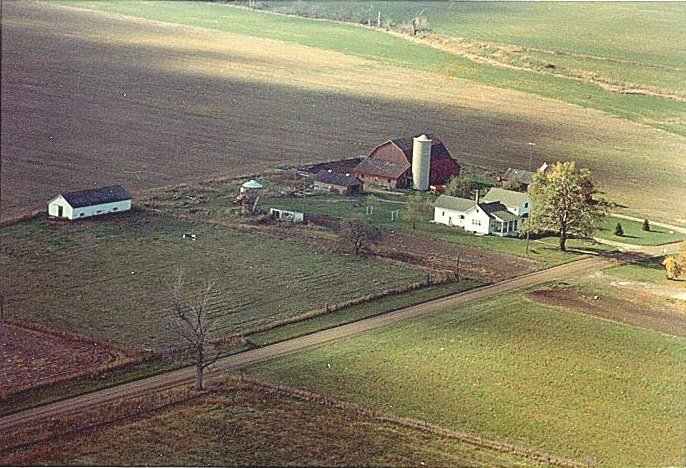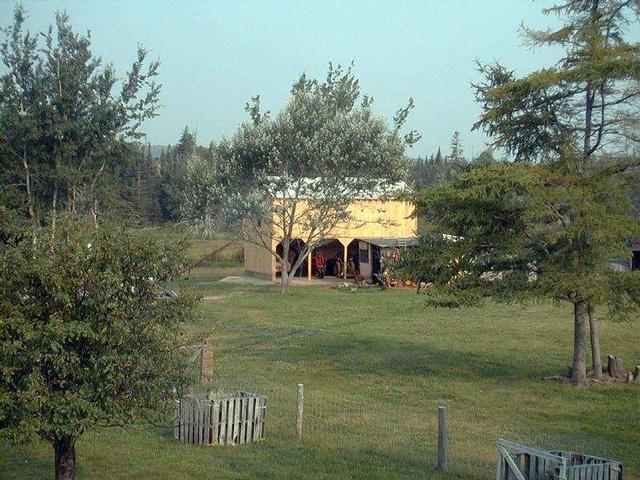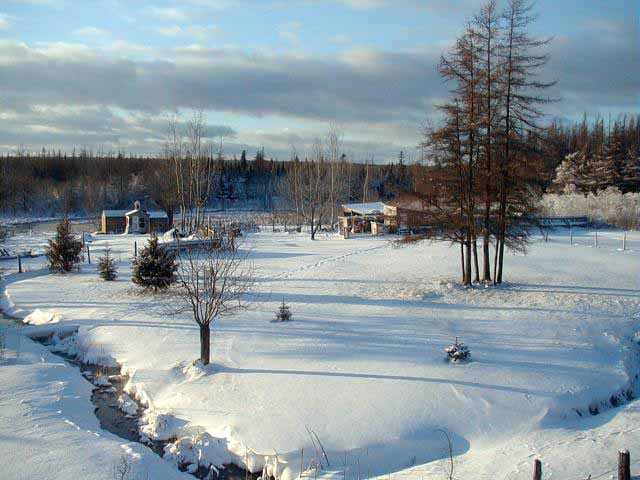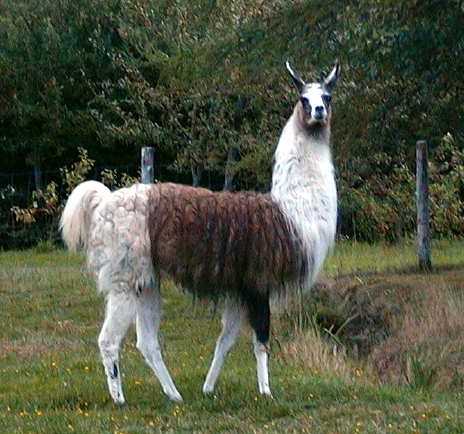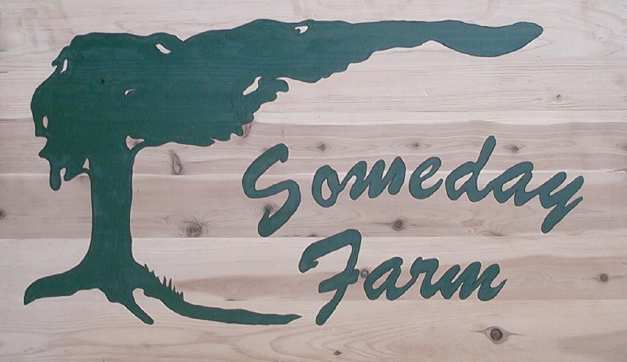
Sign art by Yovonna Donnell
Dedicated to the preservation of Rare Breeds, Old Tractors and the American Farmer
|
Those of you that got here via my "Tractor Stuff" page know that I was raised on a small farm in Michigan. Iím next to the youngest of six boys, and from my earliest memories, my Dad worked a 40+ hour week as an electrician at the local Federal-Mogul plant and farmed 120 acres in his "spare time". In the 50ís and 60ís we raised hogs and beef critters, and grew hay, corn, soybeans, wheat and oats. From the time I was old enough to help out in the mid-50ís until I left home to join the Navy in 1969, I watched things progress (as youíll see momentarily, I use that word with tongue firmly in cheek) from a time when a man could support a family with a two or three hundred acre farm to a world where managers of multi-section "agribusinesses" could barely keep up the interest payments. |
|
The following quote from the Yesterdayís Tractors Tractor Talk bulletin board says it with more eloquence than I ever could. It was posted by James Spencer, MA, MLS, and head librarian at a branch campus of the Illinois Institute of Technology:
Perhaps I am out of my "pea-picking mind," or perhaps my mind is the size of a pea, but as Blake wrote, "No bird soars too high, if he soars with his own wings." I believe that the large machinery of modern farming, probably excluding the antique equipment of this page, has contributed drastically to the damage of the land and the displacement of the people. There isn't much that is mass-produced that is better in quality to that which was produced simply, and produced with skill rather than automation. Take for example the tractors on this page; 50, 60-year-old tractors still in use quality materials and workmanship. How long do you expect the new ones to last? Could you do the same work on the new ones as you do your old one? I certainly know that what I engage in [Note: Jim farms with draft animals in addition to his "day job".] is hard work and I know it is not for everyone, but I do not view it as drudgery. I love it, and therefore it really isn't work, and since I believe that pleasure perfects work, I ultimately do a better job. I must also admit that one of the things that really troubles me is that the modern machinery and large acreage that is now commonly worked has made us more and more dependent on corporations to produce the equipment and chemicals needed to work farms as though they were factory assembly lines. I worry that we are being duped, suckered if you will, to pay for someone else's life style, to enrich non-producing corporations through the sweat and demise of hard working farmers. I do not think the factory mentality of the corporations translates well to the field of the farmer. I believe we have seen such factory practices ruin the land and destroy the small communities of the countryside. I believe that we are flying on borrowed wings; that our feathers are attached to our arms with wax; and like Icarus, we are flying too close to the sun, that we are perilously close to falling into the ocean.
I am not a Luddite or a techophobe. I spent 22 years as an electronics technician in the Navy. Since then, my primary source of income has been various jobs in support of technology. I do not now, never have, and never expect to make my living farming.
But.
Through my veins courses the blood of generations of German and English farmers. Since I retired from the Navy, Iíve found myself irresistibly drawn back to the land. I live in Downeast coastal Maine because itís beautiful (and, in no small part, because our house here is paid for).
|
|
|
|
|
|
With very few exceptions, this is not a place for big farms with acres and acres of crops. There have been, and still are, many small homesteads with a few chickens, a cow or two, maybe some sheep or goats. That is what this land will support. That is what my wife and I do.
|
|
|
|
|
|
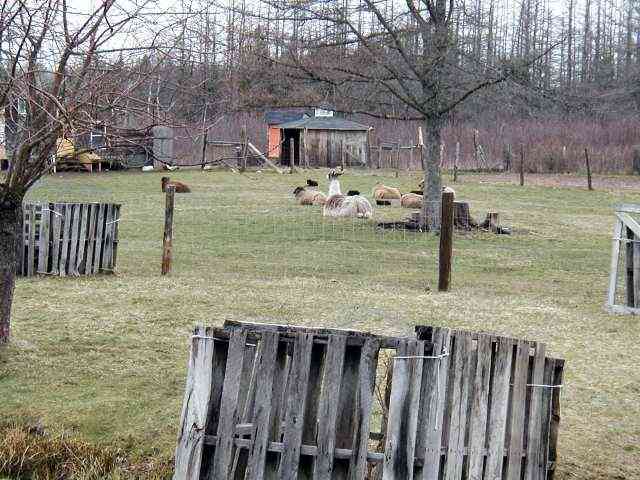
On the four-plus acres we have that are cleared, we keep a flock of laying hens, five Shetland ewes, a registered Shetland ram, whatever lambs they provide us with each year, and a Guard-Llama-In-Training. Each spring, we raise 50 or 60 meat chicks, a dozen or so turkey chicks, and plant a veggie garden comprising a couple of thousand square feet.

This is what I call subsistence farming. I keep pretty close track of expenses, and the meat and other produce is certainly not cheaper than "store-bought", and in most cases is probably more expensive. It doesnít provide any useful amount of cash income. Itís a lot of work, and it can be aggravating. The sheep donít care a damn about the weather when lambing time comes. The best time to plant the garden is slap (you should pardon the pun) in the middle of black fly and mosquito season. Chicks die, coops and pens need to be cleaned and the garden, if left to itís own devices, will grow ten weeds for every cucumber. So, why do we do it? Two reasons.
The obvious one: It provides a freezer full of fresh chicken, turkey and lamb every fall and the best eggs on the planet.
The less obvious one: Itís good for the soul. I get up every morning and take care of the animals before breakfast. I go to work and deal with technology, frustrated people, tight budgets and balky equipment. Then I come home and take care of the animals, putter about on my tractor keeping the place looking presentable, build fence, tend the garden and sometimes, just sit and watch the lambs cavorting in the pasture that used to take so long to mow when it was only a back yard. I can almost feel my blood pressure dropping. And I wonder, was it like this for my Dad?
More about Someday Farm:
